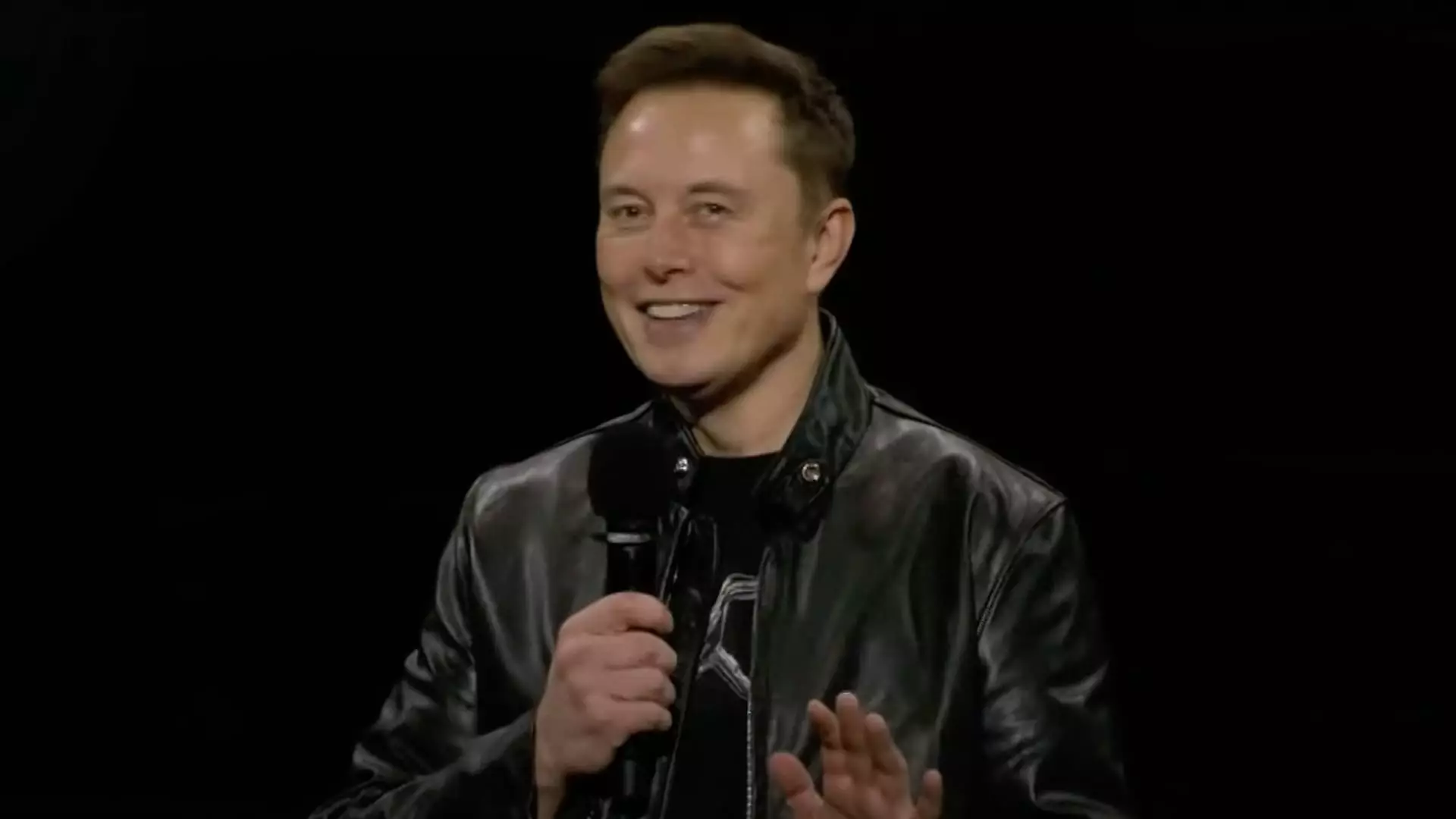Elon Musk, CEO of Tesla and a titan of the tech world, continues to redefine the parameters of wealth and influence, recently adding $26 billion to his already astronomical net worth. Following a surge in Tesla’s stock prices, Musk’s fortune reached approximately $269 billion, placing him firmly ahead of his closest rival in the wealth hierarchy, Larry Ellison of Oracle. Yet, what does this financial spike mean for Musk, Tesla, and the broader tech landscape, especially as it relates to his numerous ventures and political entanglements?
The latest increase in Tesla’s valuation was primarily sparked by an encouraging earnings report that exceeded analysts’ expectations. Tesla reported earnings per share of 72 cents, significantly surpassing the anticipated 58 cents. This robust performance has seemingly turned around a month of disappointing stock activity, as shares skyrocketed by 22%, marking the second-highest single-day gain since the company’s initial public offering in 2010.
Underlying this surge were strategic revenue contributions from regulatory credits and the Full Self-Driving (FSD) system, which have become significant revenue streams for the company. However, while the earnings report painted a picture of financial success, it also reflects a delicate balancing act that Musk must maintain, especially given that the overwhelming bulk of his wealth is tied to Tesla’s stock performance, which makes him particularly vulnerable to market fluctuations.
Diversifying Wealth: Musk’s Empire Beyond Tesla
Beyond his role at Tesla, Musk’s portfolio is impressively diversified. He owns a substantial stake in SpaceX, a company now valued at over $200 billion, which plays a crucial part in the burgeoning commercial space economy. Additionally, he controls X (previously known as Twitter) and the AI firm xAI. Each of these ventures is not only financially significant but also positions Musk at the forefront of some of the most pressing technological advancements of our time.
However, this diversification raises questions regarding Musk’s attention and focus. While he is touting an autonomous transport future and ambitious technological initiatives, there remains skepticism about whether these plans are viable. For example, despite unveiling a promising robotaxi service at a recent event, Tesla still struggles to produce a fully autonomous vehicle, making the timelines Musk presents often feel overly optimistic.
Musk’s activities extend beyond the confines of business; he has also made headlines for his political endeavors, particularly his support for former President Donald Trump. Recent reports note that Musk has ramped up his political rhetoric and financial contributions to pro-Trump campaigns significantly. He has taken a hands-on approach in critical swing states, attempting to mobilize voters in efforts that may potentially clash with his corporate responsibilities.
This intertwining of corporate and political interests poses ethical dilemmas. As a powerful business leader, Musk’s actions can sway public opinion and impact investor sentiments. Some investors have expressed concern that Musk’s political activism could jeopardize Tesla’s shareholder value, creating a precarious situation where his private beliefs and political actions could potentially undermine public confidence in the company.
Moreover, his recent initiative to offer $1 million a day in a random draw for registered voters who support his political action committee (PAC) has sparked regulatory scrutiny, with the U.S. Department of Justice warning that this may violate election laws. Such dubious legal territory raises additional concerns about how Musk navigates the often-grey areas between personal influence and corporate governance.
The Future: Implications for Musk and His Ventures
Looking forward, the wealth generated by Tesla’s stock is symptomatic of the broader tech landscape’s volatility. While Musk enjoys unprecedented financial success and influence, the sustainability of such wealth remains uncertain. His ventures, particularly in the rapidly changing fields of AI and autonomous driving, face hurdles that need to be adequately addressed to maintain investor confidence.
Additionally, Musk’s dual role as a CEO and political figure complicates his leadership views and strategies. Balancing corporate responsibilities with political advocacy requires careful consideration, as the actions taken in one sphere invariably influence the other. The potential for backlash from stakeholders cautious of Musk’s political maneuvers may create significant challenges going forward.
Ultimately, while Musk’s ascendance highlights impressive financial gains and technological promise, it simultaneously illuminates the complexities of power in the modern world—where economic, technological, and political domains are inextricably linked. As he navigates this intricate landscape, observers will closely watch whether Musk can sustain his trajectory of success in the face of ever-evolving market dynamics and societal expectations.

